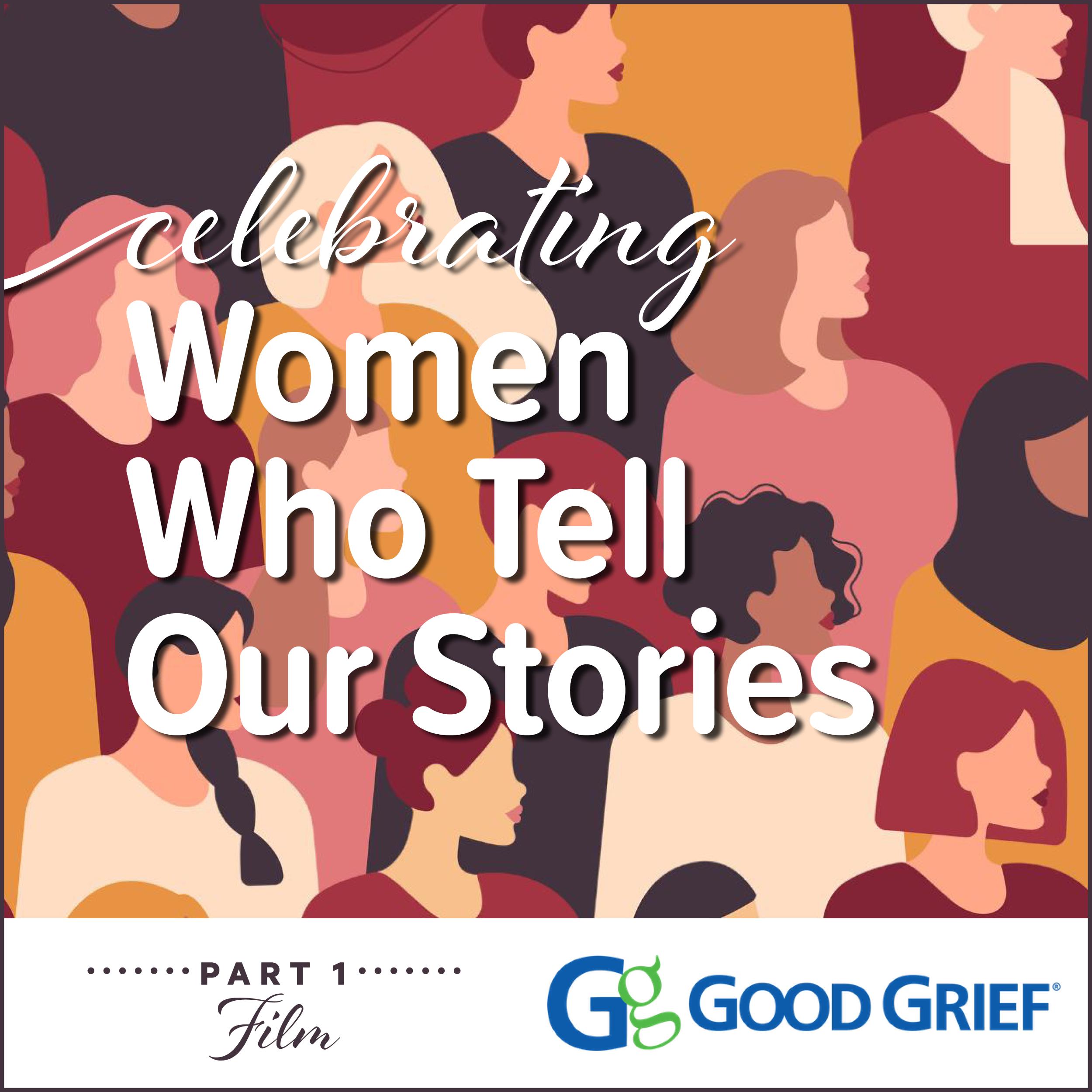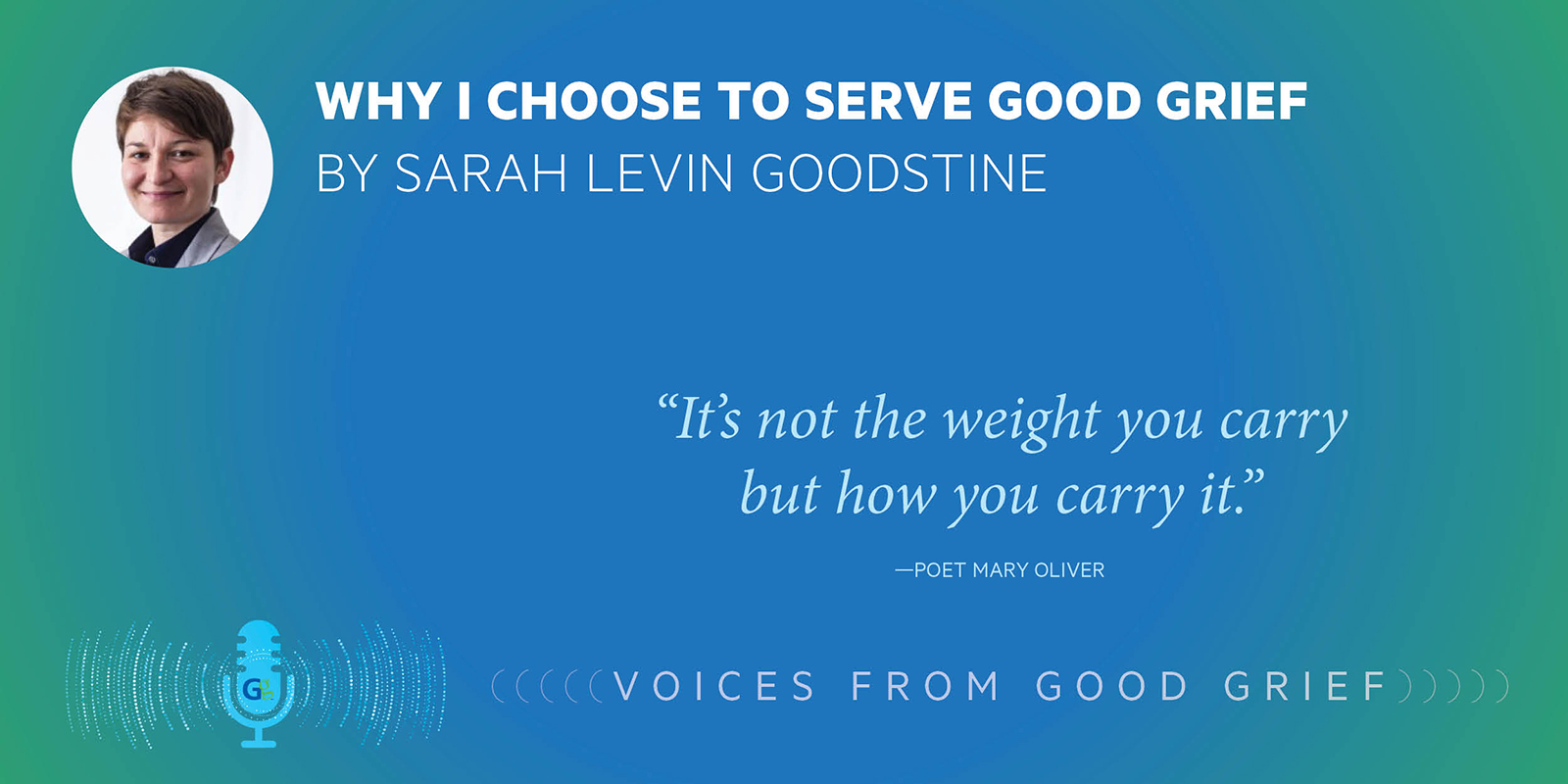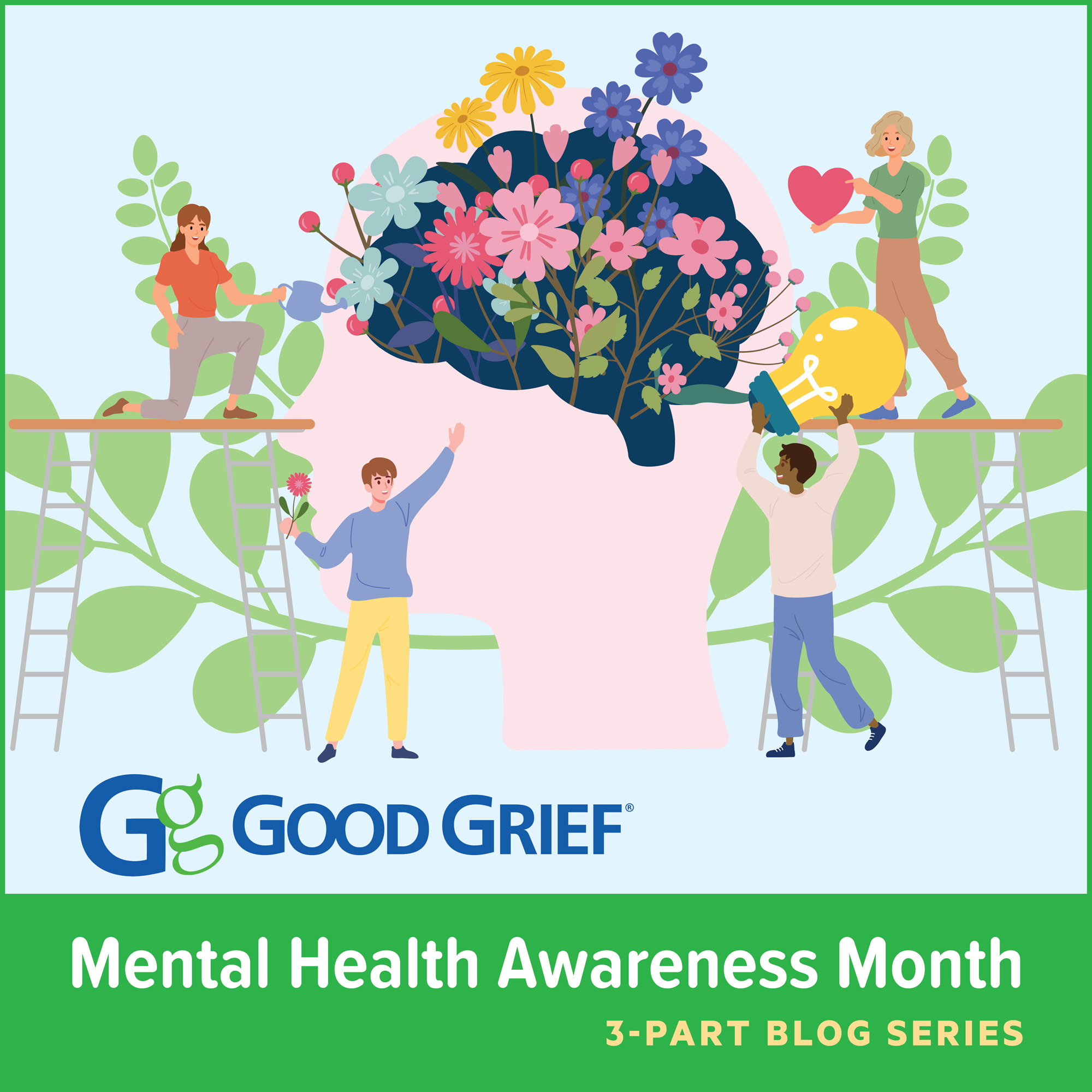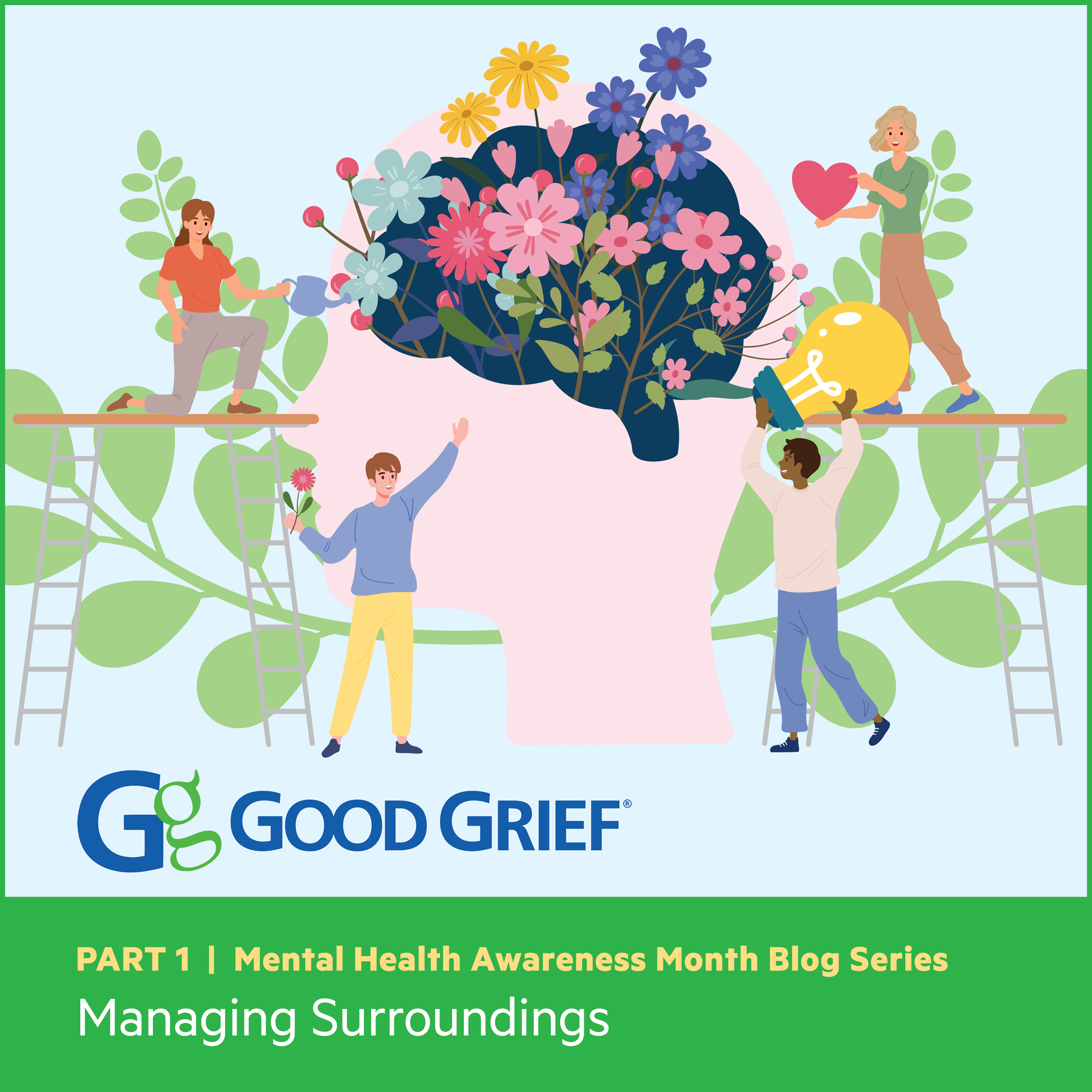
Celebrating Women Who Tell Our Stories Part 1- Film
March is Women’s History Month, and the theme for 2023 is celebrating women who tell our stories. In this three part blog series, we will highlight stories told by women about grief across different mediums.
Part 1: Film
Storytelling happens in many spaces and many places. We find stories in books or newspapers. We listen to stories around campfires or dinner tables. Stories can be current or historic. Stories can be true; they can be allegories; they can be truth wrapped in fiction. They can be poetry.
But stories aren’t limited to narratives using words. They can be narrative art; or, visual storytelling. But, however a story is told, Ohio State professor emerita Rudine Sims Bishop calls stories windows, mirrors, and sliding glass doors.
Windows, Bishop said, can let someone “look through and see other worlds and see how they match or don’t match up to your own. But the sliding glass door allows you to enter that world as well.” Bishop noted, “when lighting conditions are just right, however, a window can also be a mirror . . . and in that reflection we can see our own lives and experiences as part of the larger human experience.”
Beautiful Something Left Behind, by Danish film director Katrine Philp, follows the children of Good Grief families who participated in activities at our Morristown facility. Philp allows viewers to watch the children process their grief with the help of Good Grief’s trained volunteers. The documentary also takes viewers into the homes of those grieving children. Philp, who directed the work, and her husband, Adam Morris Philp, who did the filming, relocated to NJ with their own children for four months to capture the essence of Good Grief’s work. Viewers only hear personal stories from program participants. There is no narration.
The documentary takes its title from the words of a Good Grief participant who tells those she has journeyed the grief path with what they all know. “Grief happens in waves,” she says. But, “when the shore recedes, around you, there is going to be the beautiful memories that you have of the person that you love.”
Philp’s work won the 2020 SXSW Best Documentary award. It can be viewed on Paramount +.
The second documentary, titled Speaking Grief, was written and directed by Lindsey Whissel Fenton, a senior producer for WPSU, the PBS/NPR affiliate station for Central Pennsylvania.. This film was made possible by philanthropic support from the New York Life Foundation, an arm of the New York Life Insurance Company. The foundation focuses its charitable dollars on grief initiatives, including research. The documentary is part of a larger initiative that can be viewed at speakinggrief.org
Speaking Grief suggests human beings could be better at understanding the impact of grief on a person, and how we can help those around us. The film does not preach; rather, it tells the stories of those wrestling with grief, and intersperses those stories with observations from professional therapists.
Speaking Grief provides insights and suggestions for making the world a little more grief-sensitive. It was Ben Franklin who proclaimed that “nothing is certain except death and taxes.” And that certainty of death means that at some point in time, everyone is wrestling with grief.
The documentary is available to watch for free.






